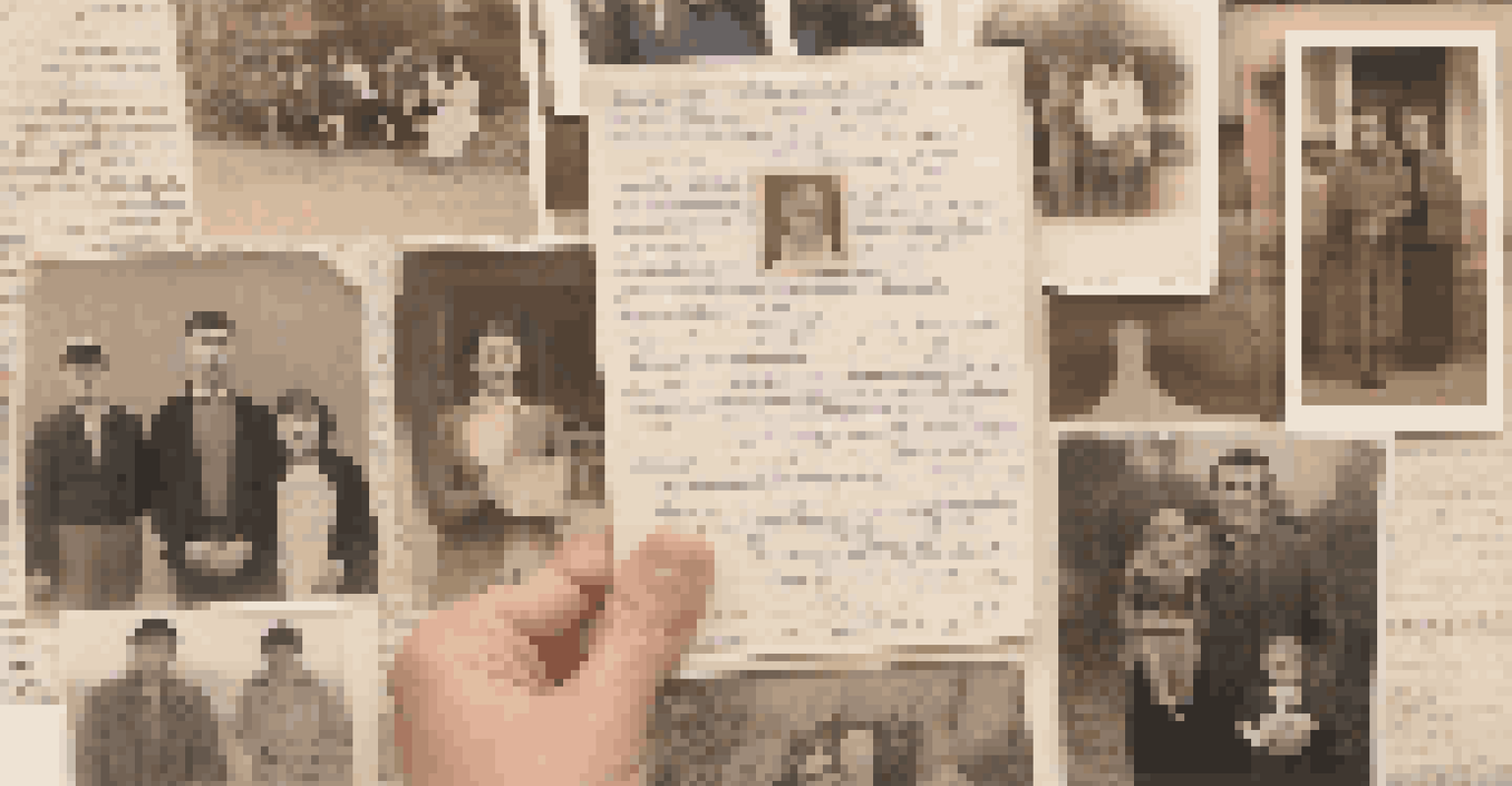Genealogy Research for Adoptees: Finding Birth Families

Understanding the Importance of Genealogy for Adoptees
Genealogy research can be a profound journey for adoptees, offering insights into their roots. Many individuals feel a deep-seated need to understand where they come from, which can help shape their identity. This journey isn’t just about finding names; it’s about connecting with a part of oneself that has been missing.
The search for our roots is a journey towards understanding who we are and where we come from.
For many adoptees, the search for birth families can fill emotional gaps and answer questions about health history and familial traits. Understanding genetic backgrounds can also aid in making informed health choices. In essence, this research can be both a personal and a practical pursuit.
With the rise of technology and online resources, genealogy research has become more accessible than ever. Adoptees can leverage various tools to trace their lineage and potentially connect with biological relatives. This is a journey that, while challenging, can lead to rewarding discoveries.
Starting Your Genealogy Journey: Key Steps
The first step for adoptees is to gather any available information about their adoption. This can include adoption records, paperwork, and any identifying details about birth parents. Even seemingly minor details can be crucial in piecing together a family history.

Once you have your information, consider using online genealogy platforms that specialize in adoption cases. Websites like AncestryDNA or 23andMe offer DNA testing that can connect you with potential relatives. These connections may lead to new insights and relationships you never expected.
Another vital step is reaching out to adoption agencies or organizations that can assist in your search. Many agencies have resources to help adoptees navigate the complexities of finding birth families. They can provide emotional support and guidance throughout the process, making it feel less daunting.
Utilizing DNA Testing for Family Connections
DNA testing has revolutionized the way adoptees can search for their biological families. By submitting a DNA sample, adoptees can find genetic matches who may be relatives. This method can be especially effective for those without much information about their birth families.
Genealogy is a way of understanding our identity, while connecting with those who came before us.
Once you receive your results, it’s essential to interpret them carefully. Often, these results will list potential family connections, ranging from close relatives to distant cousins. While this can be exciting, it’s important to approach these newfound connections with curiosity and caution.
Engaging with potential relatives can lead to profound discoveries. Some may already have information about your birth parents or may even be willing to share their own experiences. This sharing can create a sense of belonging and help fill the void that many adoptees feel.
Navigating Emotional Challenges During Research
The journey of finding birth families can evoke a wide range of emotions, from excitement to anxiety. It’s crucial to acknowledge these feelings and understand that they are a normal part of the process. Many adoptees experience a mix of hope and fear as they embark on this journey.
Consider forming a support network with others who have gone through similar experiences. Connecting with adoption support groups can provide reassurance and advice. Sharing stories can help normalize the emotional ups and downs and offer valuable insights.
Journaling your thoughts and feelings throughout the process can also be beneficial. Writing can serve as a therapeutic outlet, allowing you to reflect on your discoveries and emotions. This practice can assist in processing feelings and maintaining a sense of clarity.
Finding and Utilizing Adoption Records
Adoption records are a critical resource for adoptees seeking to find their birth families. These documents can provide valuable information, including names, dates, and locations that can serve as guides in your search. However, accessing these records can sometimes be a challenge due to privacy laws.
Many states have specific regulations regarding the release of adoption records. Understanding the laws in your area is vital, as some records may be sealed or restricted. Researching these regulations can help you navigate the process more smoothly, allowing you to access the information you need.
Once you have access to your adoption records, take the time to thoroughly analyze them. Look for any clues that may lead to your birth family, such as names or places. Each piece of information can be a stepping stone toward uncovering deeper connections.
Leveraging Social Media for Connections
Social media can be a surprisingly effective tool for adoptees in their search for birth families. Platforms like Facebook and Instagram allow users to connect with a vast network of people. You can join groups specifically designed for adoptees looking to find their biological families.
When utilizing social media, consider sharing your story and what you are looking for. This openness can encourage others who may be able to assist you in your search. Additionally, you can find others who have had similar experiences, which can provide both support and insights.
However, it's essential to approach social media with caution. Always prioritize your personal safety and privacy when sharing information. Be mindful of who you connect with and consider establishing boundaries to protect yourself during this emotional process.
The Joy and Reward of Reconnecting
The moment of reconnecting with a birth family can be one of the most rewarding experiences for adoptees. Whether through a heartfelt message, a phone call, or an in-person meeting, this connection can bring a sense of closure and belonging. Many adoptees report feelings of joy, relief, and completeness following these reunions.
It’s important to remember that every reunion is unique, and emotions can vary widely. Some may find immediate acceptance, while others may face challenges in building relationships. Being prepared for a range of outcomes can help manage expectations and foster healthier interactions.

Ultimately, the journey of finding birth families is about embracing one’s identity and history. Each step taken, whether through research, DNA testing, or emotional support, contributes to a richer understanding of oneself. This journey, while sometimes complex, can lead to a fulfilling sense of connection and belonging.